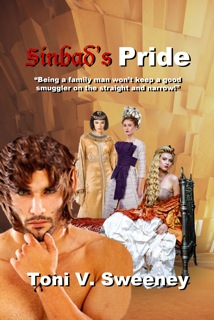Skye Alexander is the author of nearly 50 fiction and nonfiction books. Her stories have appeared in anthologies internationally, and her work has been translated into fifteen languages. In 2003, she cofounded Level Best Books with fellow crime writers Kate Flora and Susan Oleksiw. So far her Lizzie Crane mystery series includes four traditional historical novels set in the Jazz Age with a forth scheduled for a 2025 release. Learn more about Skye and her books at her website.
Saying Goodbye
Characters in books, like aspiring actors, often push for bigger parts in a story––and they may graduate from cameos to starring roles. Sometimes, though, they’re ready to retire or the author decides they’ve fulfilled their purposes and it’s time to say goodbye.
‘Til Death Do Us Part
Mystery writers specialize in killing people. Though usually we bump off the bad guys, occasionally it’s necessary to eliminate a character we––or our readers––genuinely like. Writing about the same people, from the same point of view, can grow tedious for an author over time. Bestselling author Sue Grafton admitted she wished she’d chosen something shorter than her twenty-six-book alphabet series. Of course, you can’t kill the protagonist unless you’ve decided to end the series and write something else.
In one of the most famous protagonist dumps, Agatha Christie got rid of her popular sleuth Hercule Poirot who starred in thirty of her novels. Christie had tired of the man she called a "detestable, bombastic, tiresome, ego-centric little creep" and wanted to “exorcise herself of him.” Except her publishers and fans wouldn’t let her. Finally, more than fifty years after his first appearance, Christie ended her literary relationship with Poirot. He became the only fictional character to get his obituary in the New York Times.
Sir Arthur Conan Doyle didn’t intend for his famous detective Sherlock Holmes to be a major player in his novels. Worried that the popular pipe-smoking character was preventing him from penning more serious literature, the author decided to kill his cash cow. But his readers weren’t having it. Under pressure, Doyle wrote The Adventure of the Empty House in which he pointed out inadequate eyewitness accounts of the investigator’s supposed death in a previous book and resurrected the much-loved Holmes.
Leaving the Door Open
What if an author chooses to take a series in a different direction, rather than ending it? That’s what Anne Hillerman, daughter of the popular novelist Tony Hillerman, did after her famous father died in 2008. Anne opted to let Tony’s protagonist, Navajo Nation Lieutenant Joe Leaphorn, retire from the force––but he still serves as mentor to his partner Sergeant Jim Chee and Chee’s wife Officer Bernadette Manuelito.
When I started writing Running in the Shadows, the fourth novel in my Lizzie Crane Jazz Age mystery series, one of the primary characters in my books asked me to relieve her of her duties. Melody Fitzgerald, a talented young flutist and violinist in my protagonist’s band, wanted to marry her sweetheart and start a family. I had to let her go. But even though her priorities have changed and she’ll no longer travel the country with her fellow musicians, Melody promises to make guest appearances from time to time.
This halfway method allows the author to move into fresh territory, introducing new characters or elevating minor ones to major roles, without casting off the folks who begat the series. It’s also a more acceptable transition for readers who’ve become attached to fictitious friends and don’t want to say goodbye.
A Fitting End
Cutting a character can be hard for writers––it’s like losing a friend you’ve been hanging out with for years. Mystery writer Tess Gerritsen agreed that eliminating a major character in her series was painful to write and she hesitated to do it. “But without that death, the tale would lose its power.” Sometimes it’s better to let characters die with dignity than to force them to continue after they’ve served their purpose or the author is itching to move on.
Writing a character out of your series needs to be done carefully. Killing off a key character can be powerful, but the death needs to have meaning. In Gone with the Wind, for example, Melanie’s death awakens Scarlett to the fact that she loves Rhett, not Ashley. Maybe a character sacrifices his life to save a friend or a mother dies protecting her child. Thus, the writer makes it easier for readers to accept the loss by conferring hero/ine status on the deceased. After a respectful burial or “fare thee well” the author can open new doors and invite readers to step inside.
Running in the Shadows
A Lizzie Crane Mystery, Book 4
March 1926: Salem, Massachusetts
A spring equinox party at the mansion of a rich, flamboyant, and controversial art collector promises New York jazz singer Lizzie Crane and her band a fat paycheck, lucrative connections, and plenty of fun. She’ll also have an opportunity to reconnect with a handsome Boston Brahmin she fancies.
But the excitement she hopes for doesn’t turn out the way she expected. On the night of the musicians’ first performance, a naked young woman trots into the ballroom on horseback, sweeps up a talented artist named Sebastian, and rides off with him into the night. The next morning, Lizzie discovers the artist’s body tied to a tree, shot full of arrows like the martyred Saint Sebastian in Botticelli’s painting.
Soon Lizzie learns that her business partner, pianist Sidney Somerset, once had a close relationship with the dead man––and police suspect Sidney may have murdered him. As she tries to protect her friend and discover the killer, Lizzie gets swept up in the treacherous underworld of art theft and forgery, a world where fantastic sums of money change hands and where lives are cheap.
Buy Links




